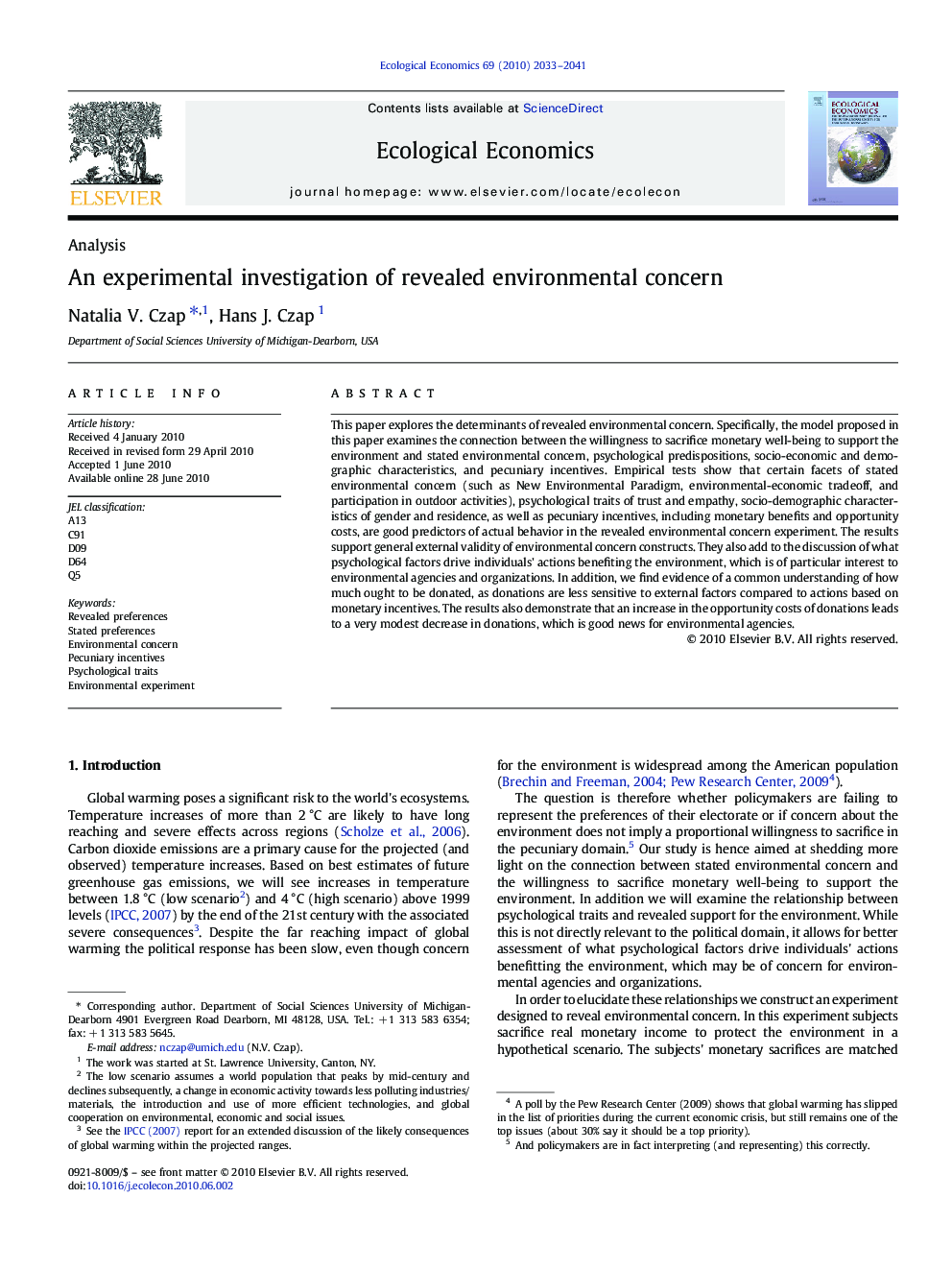| Article ID | Journal | Published Year | Pages | File Type |
|---|---|---|---|---|
| 5050757 | Ecological Economics | 2010 | 9 Pages |
Abstract
This paper explores the determinants of revealed environmental concern. Specifically, the model proposed in this paper examines the connection between the willingness to sacrifice monetary well-being to support the environment and stated environmental concern, psychological predispositions, socio-economic and demographic characteristics, and pecuniary incentives. Empirical tests show that certain facets of stated environmental concern (such as New Environmental Paradigm, environmental-economic tradeoff, and participation in outdoor activities), psychological traits of trust and empathy, socio-demographic characteristics of gender and residence, as well as pecuniary incentives, including monetary benefits and opportunity costs, are good predictors of actual behavior in the revealed environmental concern experiment. The results support general external validity of environmental concern constructs. They also add to the discussion of what psychological factors drive individuals' actions benefiting the environment, which is of particular interest to environmental agencies and organizations. In addition, we find evidence of a common understanding of how much ought to be donated, as donations are less sensitive to external factors compared to actions based on monetary incentives. The results also demonstrate that an increase in the opportunity costs of donations leads to a very modest decrease in donations, which is good news for environmental agencies.
Related Topics
Life Sciences
Agricultural and Biological Sciences
Ecology, Evolution, Behavior and Systematics
Authors
Natalia V. Czap, Hans J. Czap,
